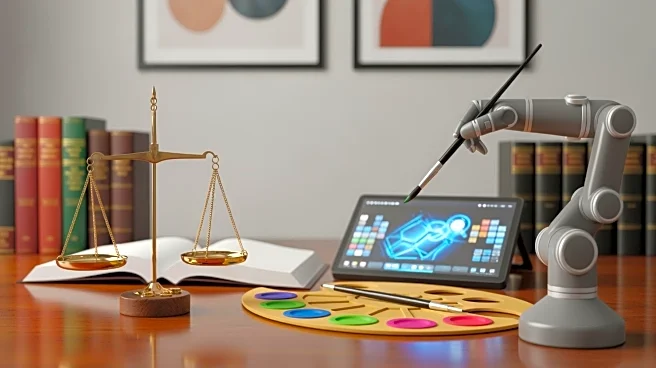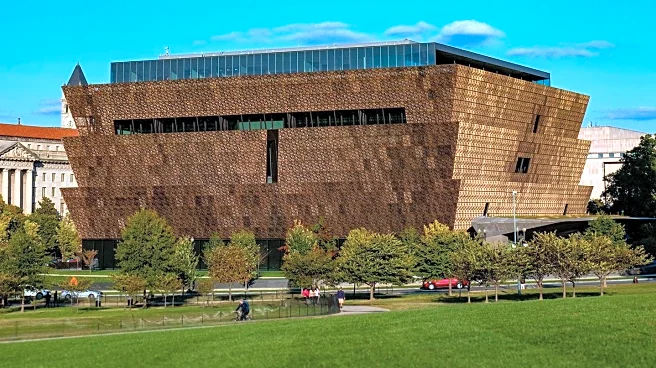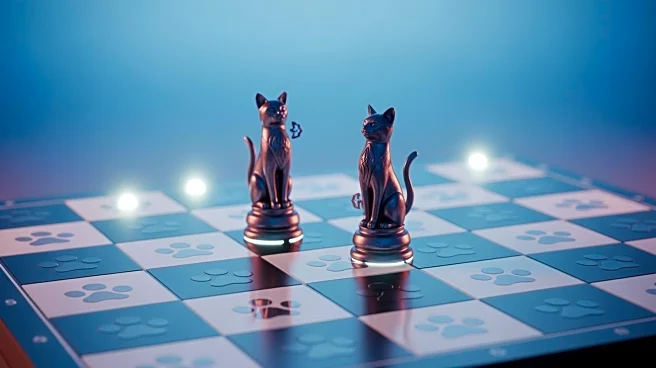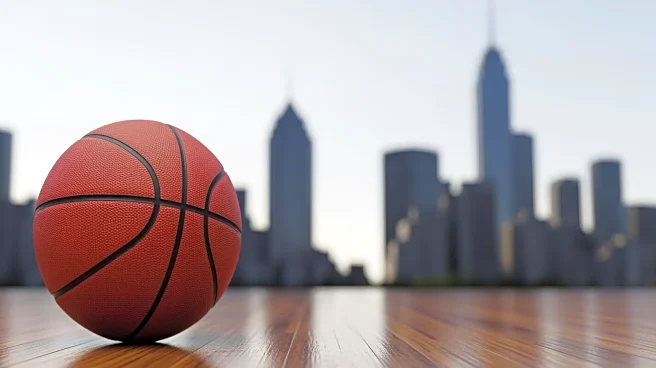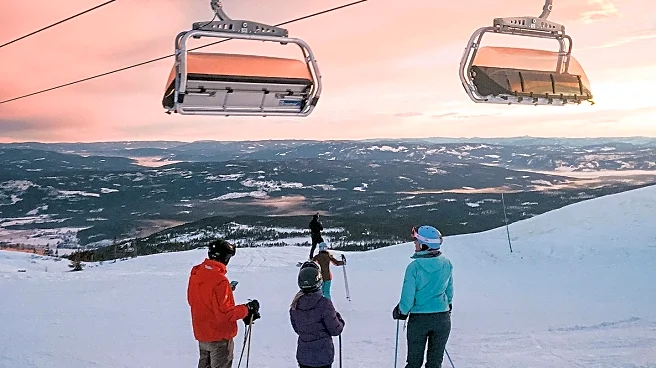What's Happening?
Computer scientist Stephen Thaler has petitioned the U.S. Supreme Court to determine whether an image generated by his AI model, the 'Creativity Machine,' can be copyrighted. Thaler's image, 'A Recent
Entrance to Paradise,' was autonomously created by AI, and the Copyright Office denied its registration due to the lack of human authorship. Thaler argues that the requirement for human authorship is not specified in the statute, which protects 'original works of authorship.' He suggests that AI-generated works should be considered under the same principles as work-for-hire, where a corporate entity can be deemed the author. The case raises questions about the copyrightability of AI-generated works and their implications for creative industries.
Why It's Important?
The outcome of this case could have significant implications for industries that rely on AI for creative processes, such as retail and design. If AI-generated works are deemed uncopyrightable, it could affect the control over reuse, syndication, and licensing of such assets. Conversely, if Thaler's position prevails, AI-generated works could become protectable intellectual property, impacting how creative content is produced, owned, and monetized. This decision will influence the commercial lifecycle of retail content, affecting production, rights clearance, enforcement, and monetization.
What's Next?
The Supreme Court's decision on whether to hear the case will be crucial. If accepted, the case will set a precedent for the copyrightability of AI-generated works, potentially reshaping the legal landscape for creative industries. Stakeholders in retail, design, and other sectors using AI will be closely monitoring the case, as it will determine the extent to which AI-generated content can be protected and commercialized.
Beyond the Headlines
The case highlights broader ethical and legal questions about authorship and ownership in the age of AI. It challenges traditional notions of creativity and authorship, prompting a reevaluation of how intellectual property laws apply to non-human creators. The decision could influence future legislative and judicial approaches to AI and copyright.
